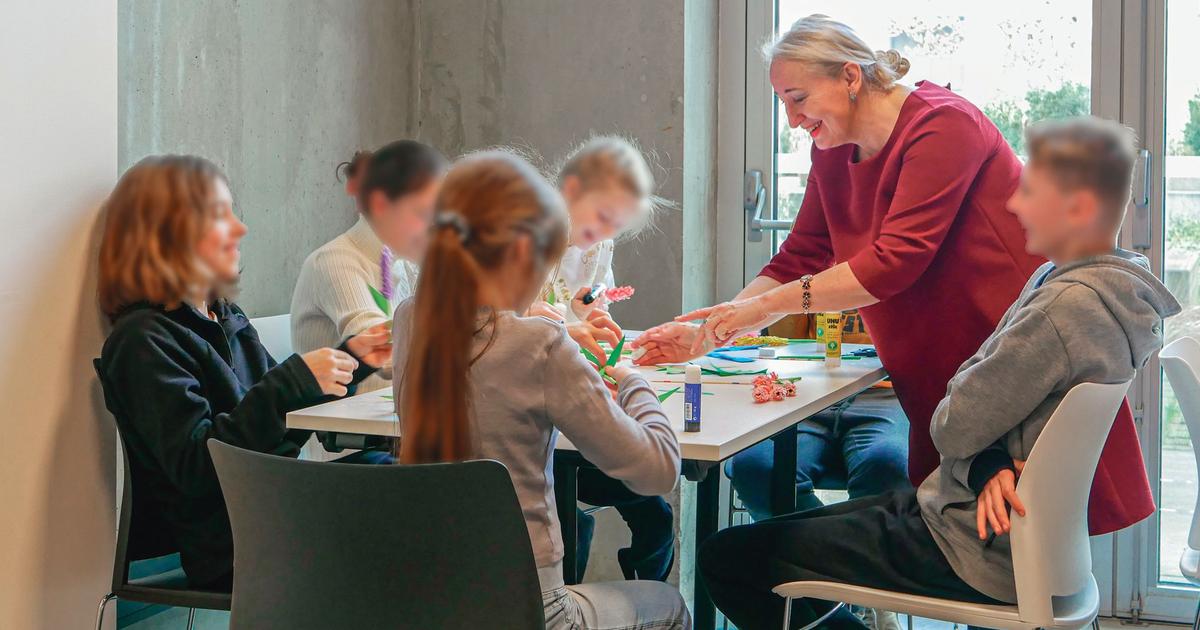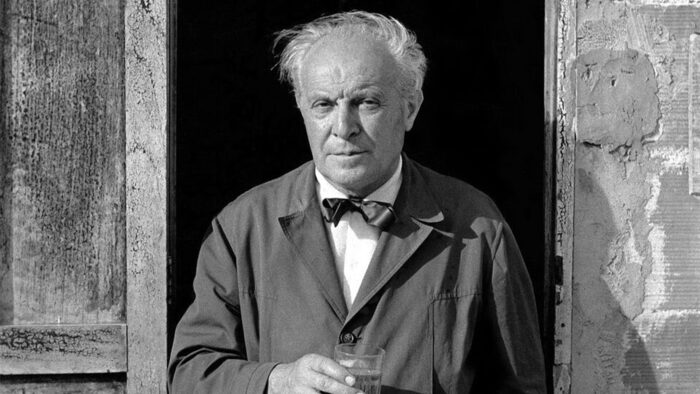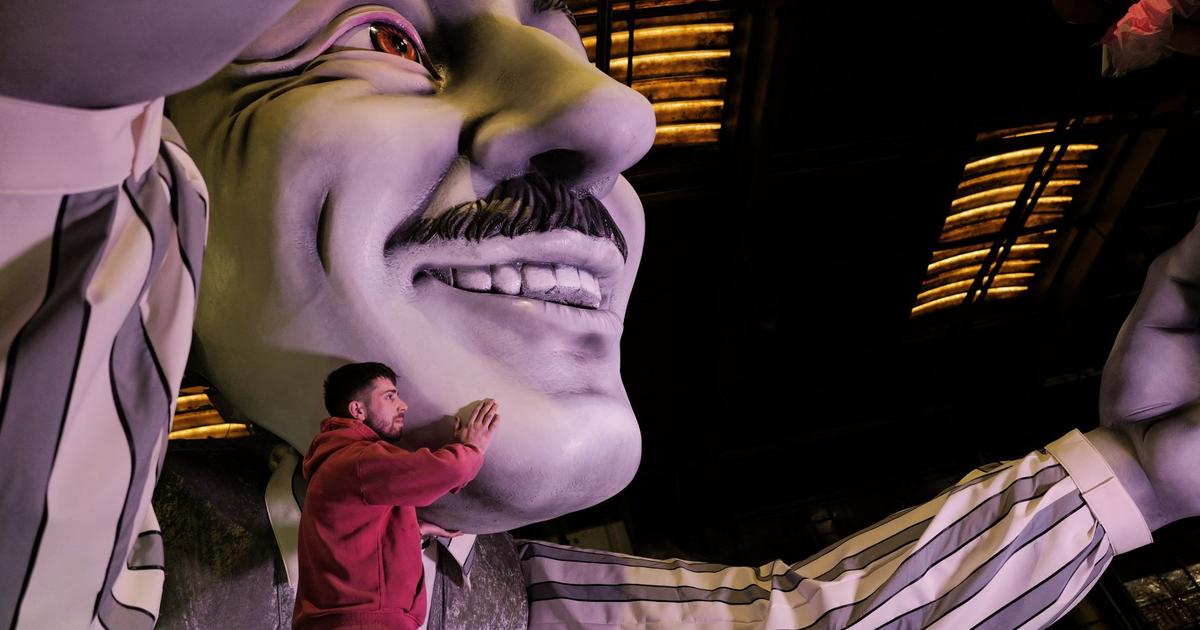Xabier Anduaga (Gérald) and Sabine Devieilhe (Lakmé) in their duet from the first act of the opera by Léo Delibes.Javier del Real
What to do with impossible operas?
Normally nothing, because history has already taken care - not without committing injustices - of sifting them, putting them away in one of those trunks that collected dust in the attics or, more modernly, in cardboard boxes deposited in those collective storage rooms that proliferate in unemployed low.
The impossibility of some operas does not necessarily have to do, however, with the quality of the music they treasure, but with the poverty or ineptitude of their arguments, children of the conventions of the moment, but indigestible once the fashion of the day has ended. .
As Edward Said so well studied —and denounced— from the angle that is usually least visible, the 19th century, for example, he felt an irrepressible passion for imposed, living-room Orientalism, not only in music, but also in the plastic arts. .
Lakme
Music by Leo Delibes.
Sabine Devieilhe, Xabier Anduaga, Stéphane Degout, David Menéndez and Héloïse Mas, among others.
Choir and Orchestra Headlines of the Royal Theater.
Musical direction: Leo Hussain.
Royal Theater, March 1.
Until March 3.
Léo Delibes is better known for ballets that have never ceased to be performed (
Coppélia, Sylvia
) than for operas that have long since ceased to be part of the regular diet of theaters.
The India of
Lakmé
(seasoned with a touch of British colonialism with a Victorian imprint) is as contrived and unbelievable as that
of Bizet
's Pearl Fishers or Massenet
's Le roi de Lahore , in the same way that
Serse
's Persia was hard to believe before.
of Handel, the Egypt of
Aida
, or that later screeched, in the last throes of operatic orientalism, the Pekingese machinations of
Turandot
or the Japanese setting of
Madama Butterfly,
both by Puccini, late heir to nineteenth-century phylloexoticism.
Undoubtedly, the most efficient and least expensive way of not completely turning our backs, not just on masterpieces like the ones just mentioned, but on notable scores, with great specific achievements, is without a doubt to offer them in concert version, which is what has decided to do (in a double session) the Teatro Real.
We are deprived of the scene, yes, but in cases like
Lakmé
, lavish in melodic, orchestral, harmonic and even rhythmic discoveries, like the formidable approach of “
Ah!
c'est l'amour endormi
” which Gérald sings at the end of the second act),
it constitutes a hindrance, if not an insurmountable obstacle.
Even Damián Szifron, who wasted talent and audacity in
Wild Tales,
crashed into the impassable wall of Saint-Saëns's
Samson and Delilah
with a bland staging at the Berlin Staatsoper in which his ingenuity was completely unrecognizable.
There are operas without a solution and his concert versions should not be reviled, but welcome: we keep the good and get rid of the bad.
More information
'Samson and Delilah' refuses to die
To embody the main protagonists (a Hindu priest, his daughter and a British officer: you can already imagine where the drama is coming from) three singers have been born with an exact decade apart and, therefore, in three very different moments of their careers: the baritone Stéphane Degout (1975), the soprano Sabine Devieilhe (1985) and the tenor Xabier Anduaga (1995).
The first was going to have sung in one of the most painful cancellations caused by the pandemic at the Teatro Real, that of George Benjamin's
Lessons in Love and Violence
, which he himself premiered at the Royal Opera House and in which he plays the king Edward II.
The second, then pregnant, had to give up her participation as Queen of the Night in the revival of Barrie Kosky's montage of
The Magic Flute .
that could be seen in Madrid at the beginning of 2020. And the tenor from San Sebastian could be admired in his debut at
Viva la Mamma!
, although he now finds himself in infinitely more demand than in the brief role of Guglielmo in Donizetti's farce.
Lakmé (Sabine Devieilhe), Nilakantha (Stéphane Degout) and Gerardo López (Hadji), the three main Indian protagonists of the opera. Javier del Real
On paper, these were three perfect choices.
Dégout lived up to his fame and his usual excellence by embodying the almost always angry and authoritarian character of Nilakantha.
He did everything well: trace the psychological profile of the monolithic priest, give us a diction of the highest school and show off a perfectly structured and molded phrasing in all his interventions.
France has always had a Lakmé of reference, from Lily Pons (American, but born in Cannes, and queen of paper at the Met in New York) to Mady Mesplé, Natalie Dessay or, now, Sabine Devieilhe.
The demands of the role are almost limitless, because not only does he have to tackle impossible coloraturas (with those of the famous aria of the bells at the head, which contains a vast catalog of vocal eccentricities),
but also delight in great lyrical effusions.
Devieilhe did the second almost better than the first, wasting musicality in the most intimate moments (such as the
Cantilène
or his very last intervention, which he has to sing “fainting”, as Delibes notes in the score).
In the famous duet with Mallika in the first act (perhaps the most famous number in the opera, one of those timeless simple melodies built by joint degrees), in the flower aria and in her duets with Gérald, the Frenchwoman showed that she has more than enough of technical resources and who, like Dégout, is a virtuoso of diction.
In the solo introduction of the aria of the bells, a use of hyper-ornamented music and without text as an instrument of seduction, he opted for the difficult variant proposed by Delibes, climbing up to the high-pitched E natural, and a short time and a throng of notes later, another unwritten was invented in the resolution of the trill right at the end of his greatest technical feat of the evening.
Even so, at the moment when he knew that he was going to attract all eyes, Devieilhe did not face his pyrotechnics, in direct rivalry with the glockenspiel (
jeu de timbres
in the colorful French terminology), with an eagerness to “
épater les bourgeois
”, a motto contemporary with the birth and premiere of
Lakmé
, but rather with some restraint and moderation.
Her voice is very agile, of course, and she moves with ease in all the notes that are well above the staff, either by jumps or in scales, but here she has rather left the feeling of being a contained singer, not at all tricky , always musical, like the extraordinary Zerbinetta that he offered at the Festival d'Aix-en-Provence, with a perhaps excessive tendency to unnecessarily flatten certain high notes and, above all, not at all friendly to gratuitous exhibitionism or the virtuosic circus.
The tenor Xabier Anduaga, before his indisposition during the intermission of the concert version of 'Lakmé' premiered on Tuesday at the Teatro Real.Javier del Real
Not a few eyes were also fixed on Xabier Anduaga, whose awards and first professional successes augur well for a still incipient career.
And the tenor from San Sebastian ended up becoming, against his will, the protagonist of the evening.
A sudden drop in tension after the first act, perhaps as a result of nerves in the face of the responsibility he knew he was facing, made him approach the last two actors with reduced physical (and mental) faculties, as denoted by the fact that he had decided to divest himself. of the bow tie and having to be almost always semi-sitting on a high stool.
Without him, the second part of the show would have had to be canceled for sure and it is to be appreciated that, even as pale and fragile as he looked, he decided to go out and sing in order to finish what had been started.
It is not easy to draw conclusions from his performance in such circumstances.
In fact, his indisposition affected all his companions, aware of what had just happened to him.
Anduaga does not seem, at least for the moment, the most suitable voice for a work as quintessentially French as
Lakmé
: neither by diction (with much room for improvement) nor, above all, by natural affinity with this type of music, which tends to color with an Italian accent.
He phrases very well with apparent spontaneity —a hallmark of the greatest—, he has an easy, ringing and attractive treble, but he still needs to polish many small details, fundamentally to provide greater unity to his long interventions, which sound excessively subdivided into its different phrases.
Hopefully on Thursday, recovered from his manifest weakness, he will be able to record his true worth, which is undoubtedly a great deal: everything points to the fact that he is called to be one of the tenors of reference for the coming years and a champion of those of his generation.
Enkelejda Shkosa (Mistress Bentson), Cristina Toledo (Miss Rose), Inés Ballesteros (Miss Ellen), Xabier Anduaga (Gérald) and David Menéndez (Frédèric), the British colonial characters of 'Lakmé'. Javier del Real
It is known that concert versions of operas always arrive underrehearsed: what is generally several weeks of preparation for a production are reduced, compressing the long process as much as possible, to a few hours of preparation spread over —in the best of all—a handful of rehearsals, to which the leading voices usually join last, who are in charge of offering density and solvency to the vocal warp of the work.
Leo Hussain left an excellent impression in the first act, concerting judiciously at all times and striving to get the most out of the always excellent Teatro Real Titular Orchestra.
The tension, the spark and the good work faded somewhat after the intermission, perhaps as a collateral effect of Anduaga's physical problems: it is as if the soufflé,
before solid, smooth and with internal tension, it would have begun to deflate and crack.
Hussain also had the good taste to —contrary to what was expected— introduce only two minimal cuts (both in the second act: before the dances and in the brief Hadji scene prior to the duet of Lakmé and Gérald) in a score in which it would not have cost much to resort, without the bloodletting being too painful, to the scalpel.
Even the various ballet numbers of the second act were played, more unnecessary than ever in a concert version, but unavoidable in the French operas of the time.
The Briton has a very good manner and was determined at all times to help singers and orchestras alike.
Years ago he directed an excellent
Hussain also had the good taste to —contrary to what was expected— introduce only two minimal cuts (both in the second act: before the dances and in the brief Hadji scene prior to the duet of Lakmé and Gérald) in a score in which it would not have cost much to resort, without the bloodletting being too painful, to the scalpel.
Even the various ballet numbers of the second act were played, more unnecessary than ever in a concert version, but unavoidable in the French operas of the time.
The Briton has a very good manner and was determined at all times to help singers and orchestras alike.
Years ago he directed an excellent
Hussain also had the good taste to —contrary to what was expected— introduce only two minimal cuts (both in the second act: before the dances and in the brief Hadji scene prior to the duet of Lakmé and Gérald) in a score in which it would not have cost much to resort, without the bloodletting being too painful, to the scalpel.
Even the various ballet numbers of the second act were played, more unnecessary than ever in a concert version, but unavoidable in the French operas of the time.
The Briton has a very good manner and was determined at all times to help singers and orchestras alike.
Years ago he directed an excellent
before the dances and in Hadji's brief scene prior to the duet of Lakmé and Gérald) in a score in which it would not have cost much to resort, without the indentation being too painful, to the scalpel.
Even the various ballet numbers of the second act were played, more unnecessary than ever in a concert version, but unavoidable in the French operas of the time.
The Briton has a very good manner and was determined at all times to help singers and orchestras alike.
Years ago he directed an excellent
before the dances and in Hadji's brief scene prior to the duet of Lakmé and Gérald) in a score in which it would not have cost much to resort, without the indentation being too painful, to the scalpel.
Even the various ballet numbers of the second act were played, more unnecessary than ever in a concert version, but unavoidable in the French operas of the time.
The Briton has a very good manner and was determined at all times to help singers and orchestras alike.
Years ago he directed an excellent
but unavoidable in the French operas of the time.
The Briton has a very good manner and was determined at all times to help singers and orchestras alike.
Years ago he directed an excellent
but unavoidable in the French operas of the time.
The Briton has a very good manner and was determined at all times to help singers and orchestras alike.
Years ago he directed an excellent
Enesco's Oedipe
at the Royal Opera House and here he would be a more than welcome baton in the future.
He has shown traces of being a more than solvent musician and, with enough rehearsals, he should be a guarantee of excellent results in the pit.
The Choir of the Teatro Real was, very probably, the one that most conscientiously and best rehearsed its contribution, in which there were only small imbalances in its long intervention during the market scene of the second act (in the third it only sang backstage) .
In the secondary roles, everyone shone in her own way: the mezzo-soprano Héloïse Mas, in the famous duet of the first act with Lakmé;
Inés Ballesteros, very young, very lyrical and with the necessary flirtation, as the young Miss Ellen (one of the members of the British colonial quota);
Cristina Toledo, showing off her stage self-confidence and enjoying what she was doing, as Miss Rose: Enkelejda Shkosa, very complicit with the Madrilenian, as a consistent and vocally attractive Mistress Bentson;
David Menendez, another British officer,
he put the serious counterpoint in his interventions with Anduaga and showed more poise in the lower register than in the high notes;
and Gerardo López was a Hadji full of good intentions, although not always well finished in the vocal aspect.
The entire cast was applauded at the end with a generosity tempered by the usual rush among the public due to the lateness of the night (the show lasted almost an hour longer than the playbill stated), with added decibels for the three protagonists , although everyone had to thank their just reward in the shadows, because someone forgot to illuminate the center of the proscenium as the moment required.
although not always well finished off at all in the vocal aspect.
The entire cast was applauded at the end with a generosity tempered by the usual rush among the public due to the lateness of the night (the show lasted almost an hour longer than the playbill stated), with added decibels for the three protagonists , although everyone had to thank their just reward in the shadows, because someone forgot to illuminate the center of the proscenium as the moment required.
although not always well finished off at all in the vocal aspect.
The entire cast was applauded at the end with a generosity tempered by the usual rush among the public due to the lateness of the night (the show lasted almost an hour longer than the playbill stated), with added decibels for the three protagonists , although everyone had to thank their just reward in the shadows, because someone forgot to illuminate the center of the proscenium as the moment required.
Héloïse Mas (Mallika) and Sabine Devieilhe (Lakmé) in the famous duet of the first act of the opera.Javier del Real
If anyone missed big doses of old-fashioned singing after
Twilight of the Gods
and the premiere of
The letter opener
, now he will have been able to fill the saddlebags more than enough with this very generous lyrical and melodic injection, full of modal scales, increased intervals and other musical resources to fake that oriental setting on which the Teatro Real has decided to run visually, fortunately, a thick veil.
Exclusive content for subscribers
read without limits
subscribe
I'm already a subscriber















